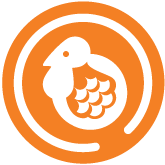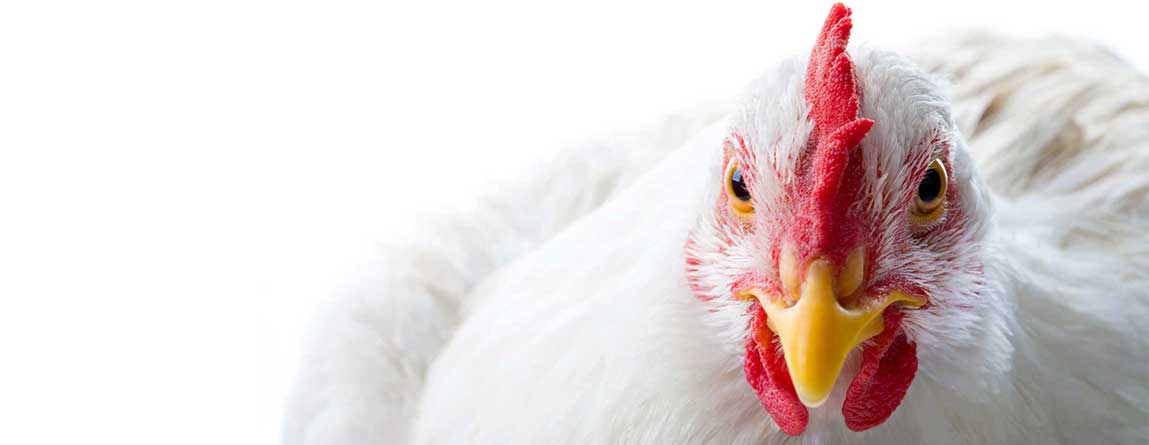
POULTRY
FIND THE BEST SOLUTION

Heat Stress
Stress is defined as a non-specific biological response of the body to adverse stimuli. Livestock are exposed to high levels of stressors in the form of high temperatures and intense heat. The World Meteorological Organization (WMO) predicts that by 2026 the average annual global air temperature will increase by 1.1-1.7°C. As a result, the problem of heat stress in the poultry industry is a growing global threat and causes significant economic losses.
High ambient temperatures, exceeding 27-30°C, cause the body temperature of birds to rise to extreme levels, disrupting the normal physiological balance and thermoregulatory mechanism, causing heat stress.
Contributing to the problem in achieving a balance between heat generation and heat loss by the body are
- environmental factors (e.g., sunlight, heat radiation, air temperature, humidity);
- animal characteristics (e.g., species, metabolic rate and thermoregulatory mechanisms);
- problems with cooling of livestock facilities (e.g., improper thermal insulation, inefficient ventilation systems, lack of Pad-cooling or fogging type systems).
During hot weather, with inadequate indoor ventilation, there is a loss of large amounts of water and a decrease in mineral concentrations. Water and electrolyte imbalances include dehydration syndromes, leading to impaired potassium, calcium and phosphate metabolisms, respiratory acidosis, respiratory alkalosis, metabolic acidosis and metabolic alkalosis.
Excessive air humidity in the facility hinders the heat dissipation in the animal body, which may cause the development of pathogens present in the environment, such as bacteria and fungi, which are dangerous to poultry health.
This has a significant impact on the behavior, physiology, welfare, mortality and productivity of poultry: a reduction in body weight and laying capacity, and a decrease in meat and egg quality.
In order to reduce the negative impact of heat stress on productivity, we should act in two ways: through facility management and through nutritional factors.
In leveling water-electrolyte and acid-base imbalances, additives containing mineral salt solutions and plant extracts are of great importance. Such an association of ingredients is expedient and sensible. Herbal preparations contain trace elements of natural chemical systems and complexes and are characterized by high bioavailability. Additional phytocomponents, such as flavonoids, anthocyanins, carotenoids, chlorophylls, sugars, sugar alcohols, amino acids, organic acids, vitamins complement the activity of electrolytes and support the processes that restore homeostasis, i.e. intracorporeal balance. Vitamin C, flavonoids and tannins, stabilize the structure of cell membranes and inhibit the release of inflammatory mediators. Appropriately selected plant extracts, that are a source of essential oils, phenolic acids and other active substances, restore normal intestinal peristalsis, digestion and absorption in the gastrointestinal tract and enhance appetite. Phytogenic multidirectional support of water and electrolyte metabolism protects birds from dehydration and its various effects.
Bibliography:
- Abdel-Hack M. E., El-Saadony M. T., Saad A. M., Salem H. M., Ashry N. M., Abo Ghanima M.M., Shukry M., Swelum A. A., Taha A. E., El-Tahan A. M., AbuQamar S. F. ,El-Tarabily K. A.; Essential oils and their nanoemulsions as green alternatives to antibiotics in poultry nutrition: a comprehensive review; Poultry Science 2022 101:101584.
- Abdel-Moneim A. M. E. I in.; Nutritional manipulation to combat heat stress in poultry – A comprehensive review; Journal of Thermal Biology, Volume 98, May 2021, 102915.
- Abramowicz-Pindor P.; Preparing poultry for heatwaves; FEED & ADDITIVE MAGAZINE 06, 2022, 42-45.
- Brugaletta G., Teyssier J-R., Rochell S.J., Dridi S.,Sirri F. A review of heat stress in chickens. Part I: Insights into physiology and gut health; Front. Physiol. 2022,13:934381.
- Goel A.; Heat stress management in poultry; J Anim Physiol Anim Nutr. 2021;105:1136–1145.
- Kikusato M., Xue G., Pastor A., Niewold T. A., Toyomizu M.; Effects of plant-derived isoquinoline alkaloids on growth performance and intestinal function of broiler chickens under heat stress; Poultry Science 2021 100:957–963.
